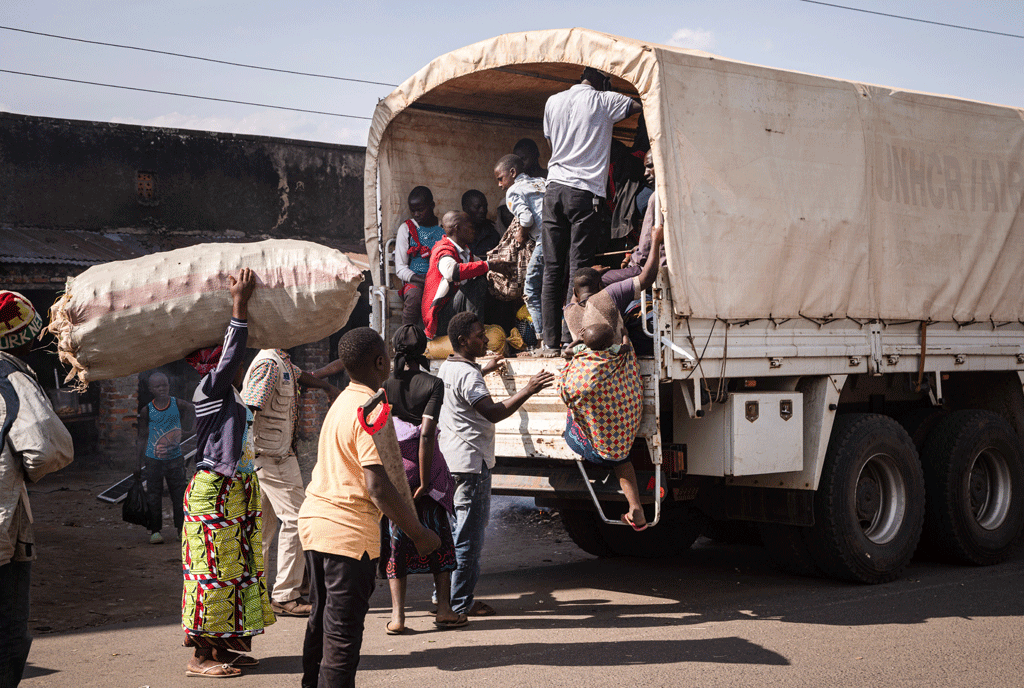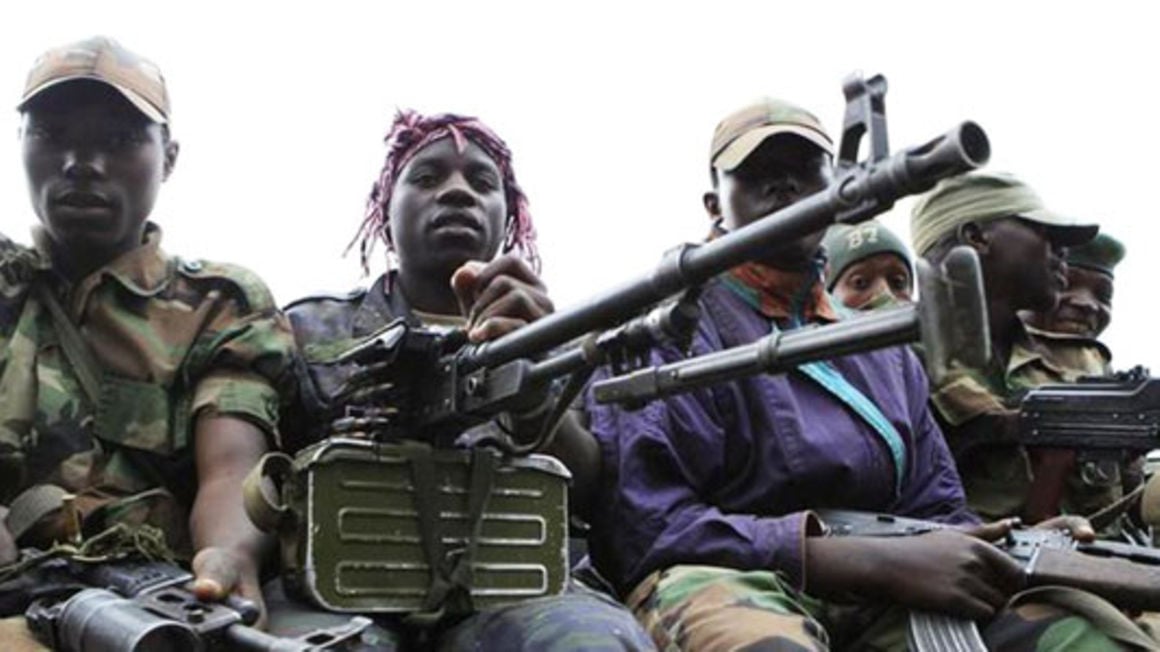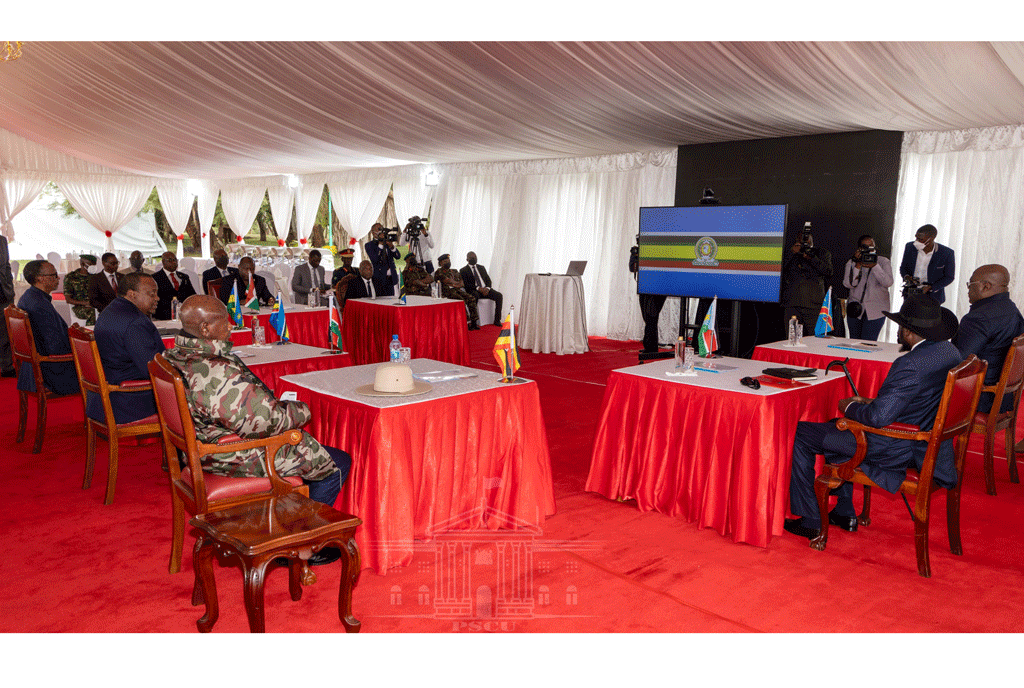EAC leaders order M23 rebels out of Bunagana

Asylum Seekers from the Democratic Republic of Congo (DRC) are guided to wait on a truck after crossing a border to be transferred in Bunagana, Uganda, on June 7, 2022, following deadly fights between M23 rebels, one of more than 120 armed groups roaming eastern DRC, and DRC troops. PHOTO/AFP
What you need to know:
- The heads of state also directed that ceasefire and cessation of hostilities be immediate.
The East African Community leaders have directed the M23 rebels to immediately withdraw from captured positions in the eastern DR Congo.
The directive was agreed on during the third Conclave, which was attended by President Museveni, and his counterparts Felix Tshisekedi (DRC) , Uhuru Kenyatta (Kenya), Évariste Ndayishimiye (Burundi), Paul Kagame (Rwanda), Salva Kiir (South Sudan) in Nairobi, Kenya, yesterday. Tanzanian ambassador to Kenya John Steven Simbachawene also attended the meeting.
In a joint communiqué issued yesterday, the heads of State directed that cessation of hostilities be immediate.
“The heads of State directed that an immediate ceasefire should be enforced and cessation of hostilities should commence immediately, including withdrawal from recently taken positions,” the statement reads in part.
“In doing so, the political process should be intensified by all parties in order to allow the citizens of the DRC to feel safe and secure and be able to pick up and continue their respective social, cultural and economic activities.”
The meetings started after M23 rebels, which the DRC government claimed to have a backing of Rwanda, resumed attacks on the Congolese troops this year.
Last week, they captured Bunagana border town on the Congo side and have since blocked traffic to Ugandan and Kenyan goods being transported to major cities in eastern DRC.
The heads of State also adopted the implementation of a regional force that will be deployed in eastern DRC.
“In doing so, the heads of State instructed that the regional force should in cooperation with the military and administrative forces of the DRC seek to stabilise and secure the peace an in the DRC. The regional force should also cooperate in implementation of the disarmament and demobilisation process,” the communiqué reads in part.
It isn’t clear whether DR Congo agreed that Rwanda will be part of the regional force that will be deployed.
Last week, Rwandan State Minister in the Ministry of Foreign Affairs, Prof Manasseh Nshuti, said Kigali would deploy under the regional force in the DRC.
President Tshisekendi accuses Rwanda of supporting M23 rebels and also providing troops, who are allegedly embedded in the rebel group.
The heads of State agreed that “all offensive language, hate speech, threats of genocide and other politically inciting language must cease and must be discouraged by all parties and that the people of the DRC must be encouraged to work together in order to stabilise the eastern DRC for it to prosper.”
Tribal tensions have been high in eastern DRC where people suspected to be Nilotic, especially those that have Rwandan origin, were attacked in DR Congo.
Congolese officials also accused Lt Gen Muhoozi Kainerugaba, the UPDF commander of Land Forces, of inciting tribal attacks when he tweeted in favour of Tutsis, Hema and Banyamulenge, who are majority in the M23 rebel group.
Lt Gen Kainerugaba’s tweets prompted the Congolese MPs to seek their government to end the military cooperation to fight Allied Democratic Forces in eastern DRC.
Since the condemnation of his tweets and the protests that followed in Eastern DRC, he hasn’t tweeted about the issues for days.
Other resolutions
In the earlier meetings, the EAC leaders had agreed that all armed forces in the DRC should enter into a political dialogue with the Congolese government. However, the DRC government later refused to negotiate with M23 rebels because the group had resumed hostilities.
In the third conclave, the EAC leaders didn’t commit themselves on who should participate in the political processes in DRC, but listed it as one of the issues that require “concerted, urgent and durable resolution”.




